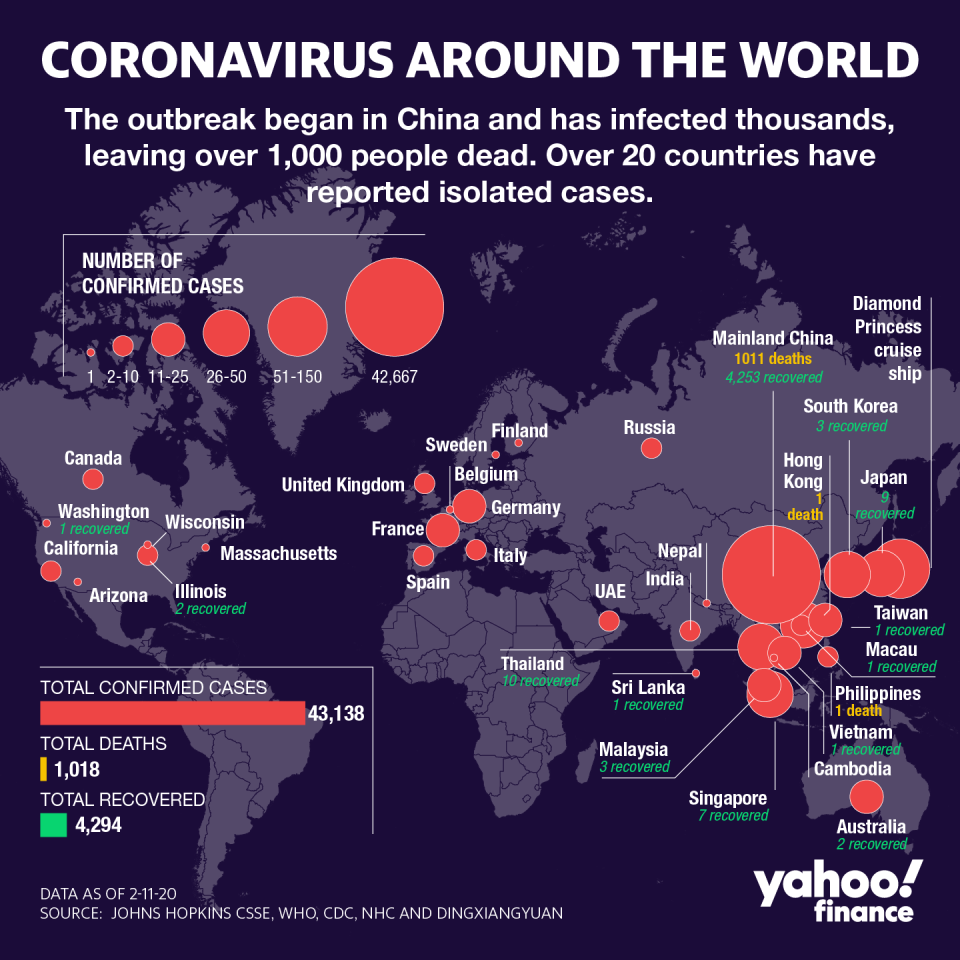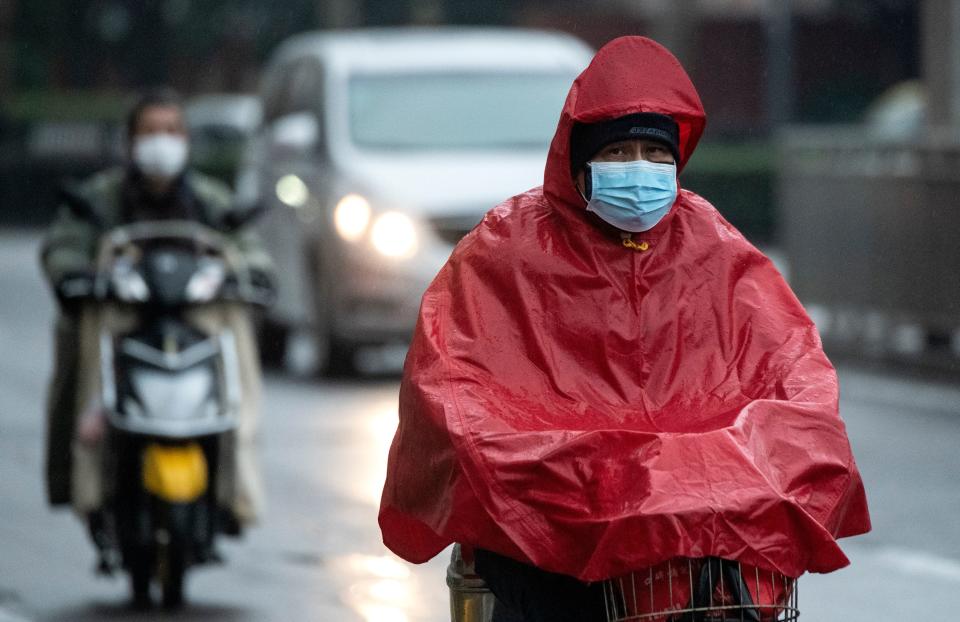Coronavirus update: China passes grim milestone of 1,000 domestic deaths as global infections rise
China mandated more quarantines within its borders on Tuesday, as the coronavirus outbreak continued its inexorable spread, claiming lives and infecting more citizens beyond the mainland.
As of Tuesday, the virus’ death toll topped 1,000 in Mainland China — where most of the infections remain contained — and sickening more than 43,000 people worldwide. The World Health Organization has convened a forum in Geneva to create global action plan, where director general Tedros Ghebreyesus called the crisis a test of worldwide solidarity.

“With 99% of [coronavirus] cases in China, this remains very much an emergency for that country, but one that holds a very grave threat for the rest of the world,” Ghebreyesus said on Tuesday.
Referring to the outbreak as a “test,” he issued a call for the world to “come together to fight a common enemy that does not respect borders or ideologies.”
The coronavirus toll has officially exceeded the casualty count from the deadly severe acute respiratory syndrome (SARS) outbreak of 2002. Meanwhile, the list of businesses that are curtailing travel and shutting down operations in the world’s second-largest economy is growing longer.
In Tianjin, officials have linked multiple infections to one department store, prompting a quarantine of thousands of residents.
Meanwhile, continued delays of operations at factories has increased the U.S. economy’s exposure, though analysts say that effect is contained — for now. On Capitol Hill Federal Reserve Chair Jerome Powell began his semi-annual testimony to lawmakers by stressing the economy’s resilience — but acknowledging new risks posed by the outbreak in China.

What’s happening in markets
Wall Street opened higher on Tuesday, with the S&P 500 (^GSPC) and Nasdaq (^IXIC) notching new record highs in early trading. Investors are hopeful that the global effort to contain the virus will prevent a repeat from last week’s steep losses, even as the world’s second-largest economy remains largely closed for business.
Travel and leisure was the first sector to feel the impact, followed by retail. The spillover is starting to hit all sectors of the economy that rely on China for supply chain needs, or a consumer market.
On Monday, a swath of Chinese factories re-opened after the long Lunar New Year hiatus, with authorities expecting more to open their doors anew in the coming days amid an effort to keep the Chinese economy humming.
“A patchwork of quarantine policies, unpredictable supply chain interruptions and continued contagion risks suggest a return to full capacity remains weeks away,” wrote UBS in a research note. “But despite these challenges, we still expect the economic and earnings impact to be relatively contained, and limited mostly to China.”
The global effect
In Hong Kong, where at least 40 people have been sickened by the virus, authorities imposed a quarantine at an apartment building where two people were diagnosed. According to The New York Times, those two cases suggest the disease may have been spread through a pipe, and raised new questions about how it can be contracted.
Economists and officials say that the coronavirus’ biggest impact is its ability to inject fear and uncertainty into a global economy that’s already awash in both. Images and video circulating on social media show the dramatic measures being undertaken by China in its efforts to curtail new infections.
These videos of China spraying disinfectant around #WuHan aren’t giving me the impression that they have the #corornavirus under control. pic.twitter.com/4WDYTLGAqb
— Lalo Dagach (@LaloDagach) February 11, 2020
"A virus can have more powerful consequences than any terrorist action,” the WHO’s Ghebreyesus said on Tuesday. “It's the worst enemy you can imagine. It can create havoc, political, economic and social."
China, which is the world’s largest oil consumer, is expected to see slower growth and lower energy consumption — something that analysts have warned could produce a “demand shock.” Already, crude prices have plummeted into bear market territory, and prompted oil exporting countries to weigh an adjustment to production quotas.
IHS-Markit said on Tuesday that it expects Chinese demand for refined crude products to contract by as much as 2.9 million barrels per day this month.
“Taken together, we expect [first quarter] demand to be down by around 1.2 MM b/d” when compared to the comparable year-ago quarter, IHS-Markt said. “All of this assumes a return to relative normal in the next couple weeks and is subject to revision as events unfold.”
Anjalee Khemlani is a reporter at Yahoo Finance. Follow her on Twitter: @AnjKhem
Read the latest financial and business news from Yahoo Finance
Follow Yahoo Finance on Twitter, Facebook, Instagram, Flipboard, SmartNews, LinkedIn, YouTube, and reddit.

